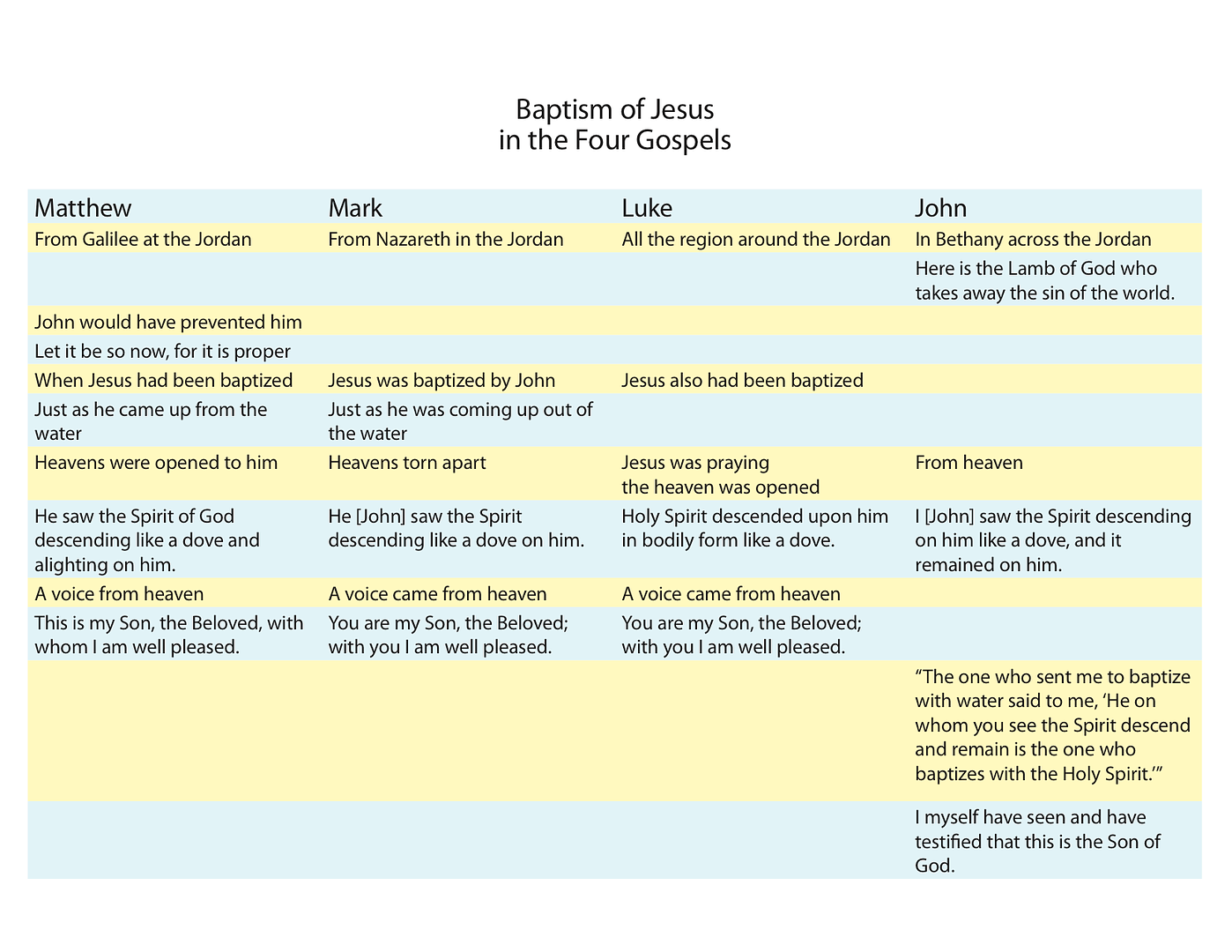Matthew 4:12-23The Season of Epiphany...
12Now when Jesus heard that John had been arrested, he withdrew to Galilee. 13He left Nazareth and made his home in Capernaum by the sea, in the territory of Zebulun and Naphtali, 14so that what had been spoken through the prophet Isaiah might be fulfilled: 15"Land of Zebulun, land of Naphtali, on the road by the sea, across the Jordan, Galilee of the Gentiles— 16the people who sat in darkness have seen a great light, and for those who sat in the region and shadow of death light has dawned."
17From that time Jesus began to proclaim, "Repent, for the kingdom of heaven has come near."
18As he walked by the Sea of Galilee, he saw two brothers, Simon, who is called Peter, and Andrew his brother, casting a net into the sea—for they were fishermen. 19And he said to them, "Follow me, and I will make you fish for people." 20Immediately they left their nets and followed him.
21As he went from there, he saw two other brothers, James son of Zebedee and his brother John, in the boat with their father Zebedee, mending their nets, and he called them. 22Immediately they left the boat and their father, and followed him. 23Jesus went throughout Galilee, teaching in their synagogues and proclaiming the good news of the kingdom and curing every disease and every sickness among the people.
...is a short segment of Ordinary Time within the church's year of grace. This section or installment of ordinary (ordered, structured, arranged) time emphasizes Jesus as light, as revelation to all the world. Even a tiny bit of light reaches far beyond where it starts.
So far in Matthew:
Matthew begins his gospel as another Book of Beginnings, a new Genesis in Jesus Christ. Matthew emphasizes Jesus as the new Moses, as the new King David.
Geography / Locations:
Genealogy
• Jesus' birth in (1)Bethlehem;
• escape into (2)Egypt from Herod's decrees;
• moving to his childhood home in (3)Nazareth;
• now he's in (4)Capernaum.
Jesus' IPO:
Matthew, Mark, and Luke all bring us Jesus' temptations in the wilderness after his baptism. We hear and claim those scriptures every year on the First Sunday in Lent.
All four gospels have a different event for Jesus' first act of public ministry. Most likely all four happened around the same time and clearly only one could have been the really real first, but each gospel writer's choice says something about their emphasis.
• Mark 1:16-26: calling the brothers Zebedee followed by exorcising a demon in the synagogue
• Luke 4:16-21: announcing the Jubilee year in synagogue
• John 2:1-11: wedding at Cana, turning water into wine – a party!
• Today we have Jesus' first act of public ministry according to Matthew.
As 1st Isaiah describes it in the passage Matthew quotes, Galilee of the gentiles, meant non-Jewish, ethnic diversity. Capernaum was a backwater, working-class town, not a large standard metropolitan statistical area. Imperial Rome occupied Capernaum. Rome controlled land and sea; Rome controlled every aspect of the local economy, all of everyone's lives and livelihoods. Food was scarce; people didn't always have safe, clean water. In a workforce dominated by physical labor like fishing and construction, illness would prevent people from working, making them poorer still.
17From that time Jesus began to proclaim, "Repent, for the kingdom of heaven has come near." Jesus doesn't talk about people being in or people being out; he uses near-far language that's more here-and-now temporal then it is spacial.
Was this Jesus' very first encounter ever with the two pairs of brothers? Maybe? Probably? Jesus' presence was compelling and charismatic... and offered a different way of being, an alternate manner of living. Barbara basically was with those who say this probably was the first time the brothers Zebedee had seen Jesus; Charles suggested news of Jesus had started to circulate, so the Zebedee fam was curious and had some prior knowledge. Though Matthew records this as Jesus' first act of public ministry, because he's doing theology just as much as he's writing history, it's very possible Jesus had been itinerating for a week or so, and Matthew pulled out this particular story to demonstrate Jesus' power and appeal.
After calling the fishing brothers as his first act of public ministry, 23"Jesus went throughout Galilee, teaching in their synagogues and proclaiming the good news of the kingdom and curing every disease and every sickness among the people." Jesus announced the reign of heaven; he told them and he showed them.
We discussed aspects of careers, paid work, other meaningful activities and endeavors God calls us to. We acknowledged God's call never is only cognitive, but always contains a spiritual and intuitive dimension or dimensions.
